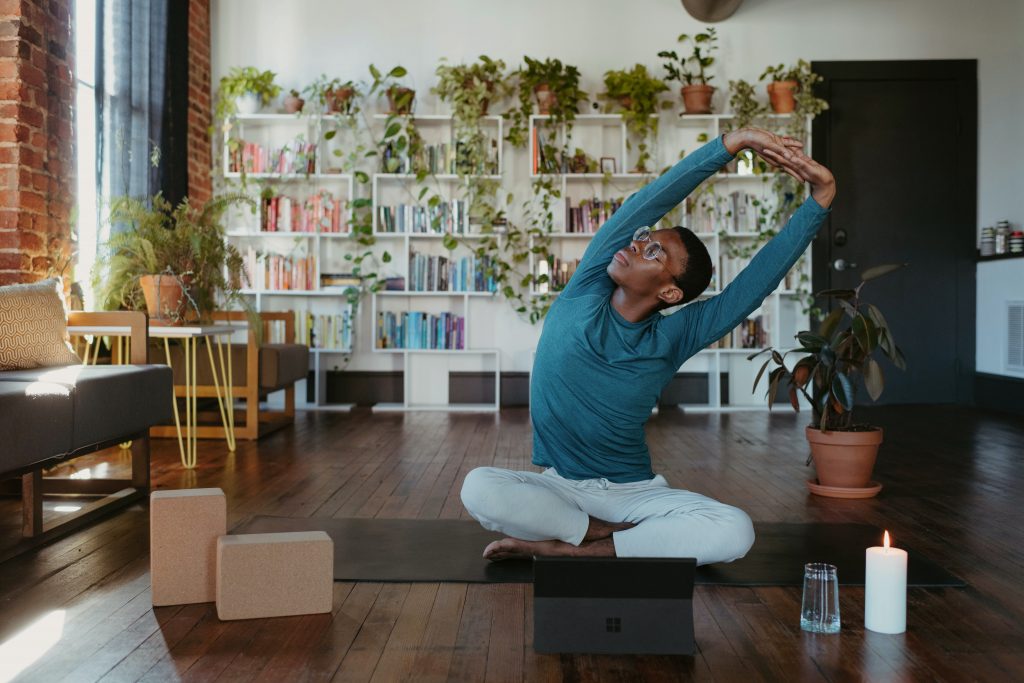Consciously taking good care of your mental health on a daily basis is great. That might sound a lot, but there are many different ways to do that. And it is important to carefully consider which ways work for you. Below I would like to share 7 useful tips.
1. Focus
First, it is good to do one thing with focus. Whether it’s eating with friends, finishing a difficult email or playing with your child. We are not made for multitasking! Multitasking unconsciously causes stress and ultimately a bad feeling; you do not feel satisfied if you are not focused on one thing. So make sure you do one thing with attention. This will help you experience flow and reduce your worrying thoughts. Here you can read more on how to do that practically. What could also help is mindfulness; this is about drawing your attention to the here and now and can help you with finding focus!
2. Be kind to yourself
We are often hard on ourselves when it comes to the expectations we want to meet. But we’re often not strict when it comes to taking care of ourselves, so pay extra attention to that! Taking good care of yourself can of course mean many different things. Find out what it means to you: for example, drinking 2 litres of water every day, stopping yourself when you worry about something unimportant, taking a break when you feel a headache coming on instead of continuing, venting your heart to friends, listening to your favourite music or taking a walk. Experiment with self-care! Find out what works for you and start small.
3. Active versus passive relaxation
Make sure that you do more active relaxation than passive relaxation. Netflixing and losing yourself in social media may sometimes feel great, but it is passive behaviour. While drawing, making music, dancing or cooking is all active relaxation. And it just so happens that that is very good for your brain! It makes you feel fulfilled and satisfied. Of course, occasionally it can be nice to completely immerse yourself in a good show, as long as you make sure that you don’t take it too far.
4. Energy guzzlers versus energy sources
A nice social circle can be a lot of fun, but you don’t get the same amount of energy from everyone. You can decide in whom you invest your time and energy and to who you give attention. Ask yourself the question: which people give me energy and which people cost me energy? Grab a pen and paper, make two columns and write it down: who makes me happy and who makes me feel stressed? Then, after you have made this overview, see whether you can increase your energy sources step by step by, for example, meeting up with your fun friend more often. And look at how you can reduce your energy guzzlers, for example by skipping a few coffee dates with a neighbour who demands a lot of energy from you.
5. Movement
You’ve probably heard it all before, but make sure you exercise daily. This is good for both your physical and mental health. You can also exercise during your work; go outside during a meeting or take a walk with your colleagues. Go out for lunch and listen to your favourite music or podcast.
6. Less alcohol
What if you stop drinking? Give it a try and see what it does to you. We all know the negative effects of alcohol, but do you also know the positive effects of quitting alcohol? You can experiment with yourself by, for example, stopping drinking for a month and seeing what difference you notice!
7. Tidy
Clutter demands a lot of energy from us. Cleaning up your mess also has a clear effect on your mental health! Do you find it difficult to keep your house tidy? Do you keep falling into a “messy” pattern? Then it may be worth taking a look at Rust in Huis.
Not only does clutter around us cause unrest, but also clutter in our heads. It can therefore help to write down what is going on in your head. Think of your to-do lists, your ideas and also the topics you worry about.
Are you struggling with complaints?
If you notice that you have structural complaints, for example, you have been feeling gloomy or tense for a long time, then it is important to take your signals seriously and seek help. Sometimes you can’t figure it out by following some simple tips. It is then very good to call in professional help. Read here how to do this for online treatment via NiceDay at various healthcare institutions.





